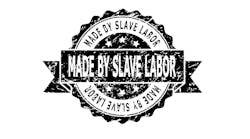A lot has changed since the #MeToo movement erupted in 2017, but the problem of sexual harassment in the workplace remains prominent. Hollywood mogul Harvey Weinstein, whose behavior kicked off the movement, is still in the headlines, where he’s been joined by other media, political and business leaders.
Over the past year we saw unfold the sordid story of Jeffrey Epstein, which has further sullied the reputations of former President Bill Clinton and Britain’s Prince Andrew. But over the past three years we’ve also seen new laws enacted to fight sexual harassment, making it easier for victims to seek redress and requiring employers to take steps to prevent it from happening, including requiring workplace policies and training.
A half dozen states currently have laws requiring training: California, New York, Illinois, Connecticut, Delaware and Maine. The first three are among the country’s top five most populous states. Companies with national operations have employees who come under those states’ employment laws (something particularly painful in other respects if you operate in California—but that’s a story for another day).
Last August, California enacted a law delaying for one year the effective date of employer harassment training requirements created by law in 2018—from Jan. 1, 2020, to Jan. 1, 2021. Under the new statute, employers with five or more employees, including temporary or seasonal employees, must provide at least two hours of training to all supervisors and at least one hour for nonsupervisory employees in the first year and then once every two years.
The effective date needed to be delayed because of widespread confusion over the poorly-worded original legislation—something that seems to be happening more frequently as California’s Democrat super majority continues to spew out employment laws by the dozen.
The law calls for employers to include practical guidance on federal and state laws concerning the prohibition against and the prevention and correction of sexual harassment and the remedies available to victims of sexual harassment, and must be presented by trainers with knowledge and expertise in the prevention of harassment, discrimination and retaliation. Training also must cover harassment based on gender identity, gender expression and sexual orientation.
Starting last October, New York mandates training for all employees who work any portion of time in the state, regardless of immigration status and whether they are exempt, non-exempt, part-time, seasonal, temporary or interns who work more than 80 hours in a year. The law also covers independent contractors who work for an employer for more than 80 hours a year and haven’t received training elsewhere.
Employers must use a model harassment prevention training program provided by the state, or establish a program that at least meets minimum standards set by the law. A live trainer is recommended, but New York currently doesn’t certify or license training providers.
In Illinois, as of Jan. 1, employers with 15 or more employees must provide annual harassment prevention training for all employees, regardless of classification. The Illinois Department of Human Rights offers a free model training program, but employers may use their own as long as it meets state standards. Illinois has no requirements for training format, trainers or retention of records.
The three other states’ training requirements are similar, if not as detailed. One thing they have in common is that they include smaller employers, including employers with 50 or more employees in Delaware, as few as 15 employees in Maine and three in Connecticut.
What is clear for employers, whether or not you are directly impacted by these particular state laws, is that you need to develop sexual harassment training programs adequate for stemming this kind of behavior and for protecting you from future liability.




